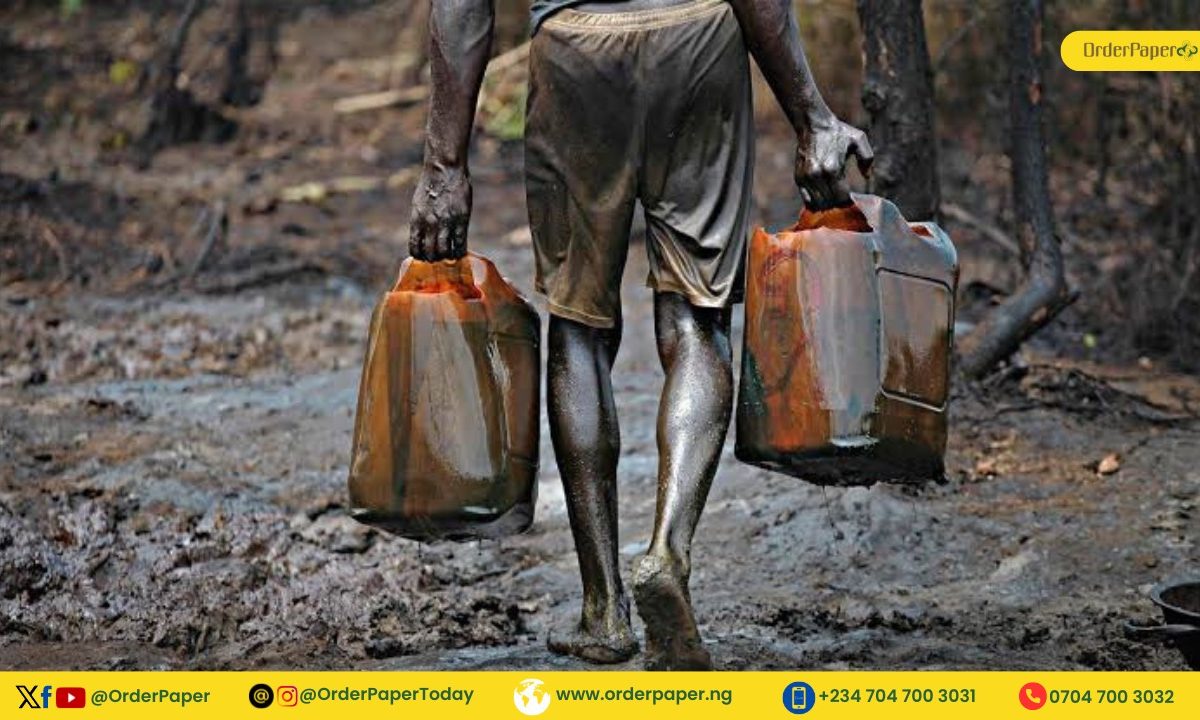The integration of sustainability into business models across industries is fast becoming a regulatory and compliance issue globally. And in this direction of play, Nigeria is moving along with the trend.

In an earlier piece, we delved into a definition of the concept of sustainability. In this piece, our focus would cover sustainability reporting and the frameworks that are available across industries and economic sectors. Sustainability reporting frameworks are essential tools that help organisations evaluate, measure and communicate their Environmental, Social, and Governance (ESG) performance to stakeholders, including communities, government, shareholders, and various stakeholders across the supply chain.
This helps to promote transparency and accountability in terms of ethical standards and environmental concerns. Today there are more than 600 different sustainability reporting standards, industry initiatives, frameworks, and guidelines around the world, which can make sustainability reporting a complex, research-heavy, cumbersome, and repetitive process.
However, the trend most companies take is to follow sustainability reporting laws and frameworks set out by the government(s) where applicable, and/or voluntarily select the standards they use for reporting- and, to some extent, how they report sustainability performance.
READ ALSO: INSIGHT: Sustainability as the New Deal for Companies and Communities
Notable Global Sustainability Reporting Frameworks
- Task Force on Climate-related Financial Disclosures (TFCD)
The TCFD was set up to develop recommendations for voluntary climate-related financial disclosures as a tool for investors and other stakeholders to assess risks associated with climate change. The disclosure recommendations are structured around four thematic areas that represent core elements of how companies operate: governance, strategy, risk management, metrics and targets. The four recommendations are interrelated and supported by 11 recommended disclosures that build out the framework with information that should help investors and others understand how reporting organisations think about and assess climate-related risks and opportunities. The task force has since completed its work and the recommendations incorporated into the International Sustainability Standards Board (ISSB) framework.
- International Petroleum Industry Environmental Conservation Association (IPIECA)
This sustainability reporting guidance for the oil and gas industry is a key tool to aid companies shape the structure and content of their sustainability reporting. Published in conjunction with the American Petroleum Institute (API) and the International Association of Oil & Gas Producers (IOGP), it brings together the collective wealth of technical expertise from the membership of the three associations. The guidance provides direction on the content of a typical industry report by covering 21 sustainability issues and 43 indicator categories.
- Sustainability Accounting Standards Board (SASB):
The Sustainability Accounting Standards Board (SASB) framework connects businesses and investors on the financial impacts of sustainability. In order to make it as widely applicable as possible, the SASB framework comprises 77 separate standards covering a broad range of industries. Each set of standards divides topics according to five issue categories:
- Environment
- Social capital
- Human capital
- Business model and innovation
- Leadership and governance
These are further broken down into 26 general sustainability categories, such as labour relations, data security, and business ethics. Each of the SASB standards highlights financially material ESG information that’s pertinent to the reporting agency’s specific industry. This allows respondents to identify and report on the most relevant aspects of their sustainability performance.
READ ALSO: Gas will play role in Nigeria’s energy transition – NEITI
- American Exploration & Production Council Framework
The American Exploration and Production Council (AXPC) is a trade association representing the largest independent oil and natural gas exploration and production companies in the United States. To promote transparency and consistency in ESG reporting among U.S. upstream exploration and production companies. AXPC’s ESG Framework focuses primarily on environmental metrics and centres around five key areas that are important to capture a more consistent and transparent reporting across the upstream industry such as greenhouse gas (GHG) emissions, flaring, spills, water use, and safety.
- Global Reporting Initiative (GRI)
This framework delivers a global best practice for how organisations communicate and demonstrate accountability for their impacts on the environment, economy and people. It covers topics that range from biodiversity to tax, waste to emissions, diversity and equality to health and safety. As such, GRI reporting is an enabler for transparency and dialogue between companies and their stakeholders.
- World Economic Forum (WEF) ESG Disclosure Framework
This framework was developed by the Big Four accounting firms. The framework includes a universal set of metrics and recommends disclosures intended to lead to a more comprehensive global corporate reporting system. The framework divides disclosures into four pillars — principles of governance, planet, people, and prosperity — that serve as the foundation for ESG reporting standards.
- Science Based Targets Initiative (SBTi)
The SBTi is a benchmark for corporate commitment to climate change mitigation. Through science-based target-setting, companies can align their strategies with the goals of the Paris Climate Agreement, specifically limiting global warming to 1.5°C above pre-industrial levels. The framework provides sector-level guidance and specific guidance for SMEs.
READ ALSO: PERSPECTIVE: Safeguarding communities in the energy transition
What is Obtainable in Nigeria
Notably, the Financial Reporting Council of Nigeria (FRC) announced its intent to be an early adopter of the International Financial Reporting Standards- IFRS Sustainability Disclosure Standards by the International Sustainability Standards Board (ISSB) during the 27th Conference of Parties (COP 27) held in Sharm El-Sheik, Egypt. The IFRS sustainability disclosure is driven by the need for a global baseline for sustainability reporting.
In June 2023, the FRC, ISSB and the Nigeria Exchange Group Regulation Limited (NGX Reg Co) launched two ISSB Sustainability Disclosure Standards, IFRS S1 & S2.
Differences between IFRS 1 and IFRS 2
| S/N | IFRS 1 | IFRS 2 |
| 1. | SCOPE
Focuses on disclosing sustainability-related risks and opportunities throughout the entity’s value chain, considering interactions with stakeholders, society, the economy, and the environment. The objective is to provide insights to primary users of financial reports for resource allocation decisions. |
Specifically targets climate-related risks and opportunities, excluding those that would not reasonably impact the entity’s prospects. The objective is to provide information useful for resource allocation decisions related to climate resilience. |
| 2. | COVERAGE
Covers a broad range of sustainability-related factors beyond climate change, including social and governance aspects. |
Exclusively addresses climate-related risks and opportunities, emphasising the entity’s exposure to climate risks and its resilience through scenario analysis. |
| 3. | ASSESSMENT APPROACH
Requires entities to consider all reasonable and supportable information available at the reporting date to identify sustainability-related risks and opportunities throughout the value chain. |
Mandates the use of climate-related scenario analysis tailored to the entity’s circumstances, considering exposure to climate risks and available resources for analysis. |
| 4. | MEASUREMENT AND DISCLOSURE
It does not specify a particular measurement approach but requires disclosure of entity-specific and external environmental conditions used in assessing sustainability-related factors. |
Requires disclosure of the measurement approach in line with the Greenhouse Gas Protocol or other applicable methods, along with emission factors used in the analysis. |
READ ALSO: COP28: Why Africa Must Accelerate Transition from Fossil Fuel to Renewable Energy
In summary, while both standards aim to provide information on sustainability-related factors, IFRS 1 covers a broader scope of sustainability issues, whereas IFRS 2 focuses specifically on climate-related risks and opportunities and mandates scenario analysis tailored to climate resilience.
Nigeria’s Nationally Determined Contributions (NDCs) as a Framework
Following Nigeria’s signing of the Paris agreement adopted on the 12th of December 2015 by 196 sovereign nations at the 21st Conference of Parties (COP21), the Federal Government of Nigeria (FGN), in the same year, submitted an ambitious and transparent Nigeria’s Nationally Determined Contributions (NDCs) which served as blueprint for the country’s efforts to combat climate change by outlining specific goals and targets for reducing greenhouse gas emissions and enhancing resilience to climate impacts.
The NDC, which was last updated in 2021, pledged an unconditional contribution of 20% carbon emissions below business-as-usual by 2030 and a 47% contribution conditional on international support in the same year. By implementing its NDCs, Nigeria aims to transition to a low-carbon and climate-resilient economy, which aligns with the principles of sustainability. This involves reducing emissions across various sectors including the energy industry by enhancing the country’s capacity to adapt to the impacts of climate change.
The relationship between NDCs and sustainability reporting lies in their shared objectives of promoting sustainable development and addressing climate change. Integrating NDC targets into sustainability reporting allows companies and communities to align their efforts with national climate priorities. This alignment not only enhances the credibility of sustainability reporting but also ensures that corporate and community actions contribute meaningfully to national climate goals.
Furthermore, incorporating NDC targets into sustainability reporting can guide strategic decision-making processes within organisations. By assessing their performance against NDC benchmarks, companies and communities can identify areas for improvement and prioritise initiatives that will have the greatest positive impact on climate mitigation and adaptation efforts.
Moreover, sustainability reporting serves as a valuable tool for monitoring progress towards NDC targets and assessing the effectiveness of policies and initiatives at both the national and local levels. By providing comprehensive data on environmental performance, resource usage, and social impacts, sustainability reports enable policymakers to evaluate the success of climate policies and make informed decisions about future strategies and investments.
By integrating NDC targets into sustainability reporting, companies and communities can demonstrate their commitment to environmental stewardship, foster transparency and accountability, and play a meaningful role in Nigeria’s efforts to build a more sustainable and resilient future.
The Hard Truth….
There is a huge knowledge gap in the adoption of these standards in Nigeria as many organisations lack the expertise and skilled personnel for reporting. There is a need to increase awareness and develop sustainability professionals’ capacity for IFRS S1 and S2 implementation. Adequate knowledge of data collection for transparent reporting of climate risks and opportunities is crucial for ensuring reliable, transparent, and easily understood impact metrics.
Finally, it is important to note that the standards can be better understood and applied through collaboration among various stakeholders, including industries, businesses, regulatory bodies, educational institutions, and Civil Society Organisations. This collaboration can provide insights, best practices, and case studies while promoting the integration of sustainability principles into business practices. This approach accelerates the transition towards a more sustainable financial reporting landscape.
Editor’s Note: This piece was updated on 15th April, 2024


